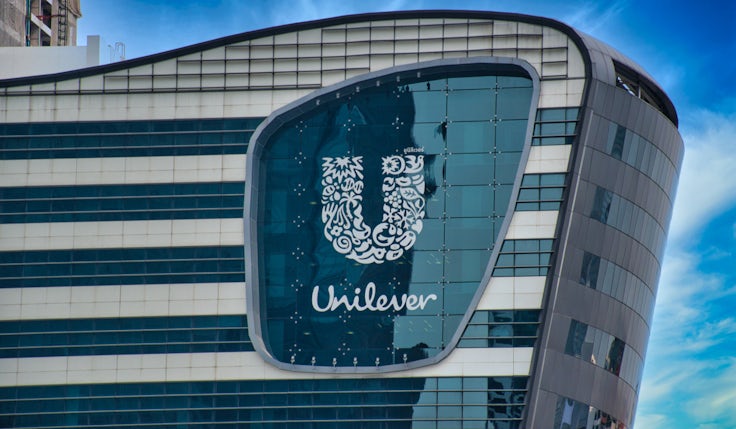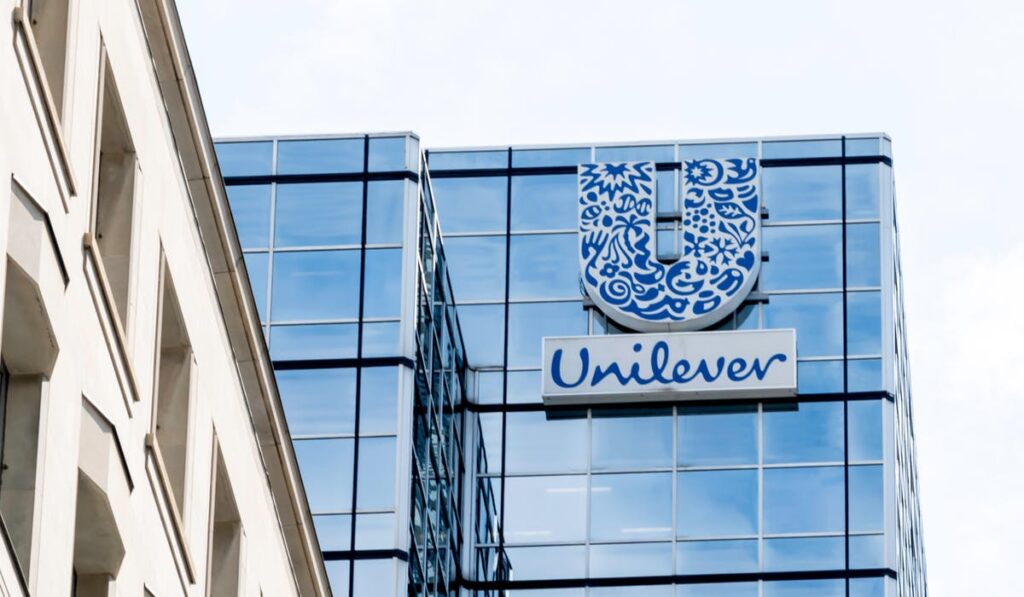 Unilever increased its brand and marketing investment to its highest level for over decade in 2024, as it focused on backing “fewer, bigger innovations” and its most profitable brands.
Unilever increased its brand and marketing investment to its highest level for over decade in 2024, as it focused on backing “fewer, bigger innovations” and its most profitable brands.
The Dove, Hellmann’s and Sure owner increased marketing investment by €900m (£750m) in 2024. Over the past two years, spend in the area has been increased by €1.6bn (£1.3bn). Brand and marketing spend as a percentage of group turnover is now 15.5%, up from 14.3% last year, and the highest level for the FMCG giant in over a decade.
“All additional investment was concentrated in our top 30 brands behind a much more focused innovation programme,” Unilever chief financial officer Fernando Fernandez told investors today (13 February).
Zoning in on big bets across the portfolio has been a priority for Unilever’s leadership since CEO Hein Schumacher took the helm of the business in late 2023. This involves focusing both on the company’s most profitable “power brands” and its biggest markets, while prioritising more impactful innovation.
One example provided was in the company’s home care business where it introduced Persil Wonder Wash, designed to work effectively in colder and shorter cycles. This product delivered “excellent” results, Fernandez said, who added the company expects it to become a €100m (£83m) innovation platform.
‘Market-maker, not share-taker’: Sure on why it is pioneering whole body deodorant
Focused innovation forms one pillar of what the FMCG business terms its Growth Action Plan (GAP). Other elements of this include embedding productivity initiatives across the organisation and a focus on “unmissable brand superiority”.
“These changes are intended to set us up for consistent, higher performance over the longer term, the benefits are already apparent in improved performance,” Schumacher asserted.
In 2024, Unilever saw underlying sales growth of 4.2%, with turnover reaching €60.8bn. The business was keen to stress that this growth was volume-led, with volume sales increasing 2.9% in the year. It grew volume sales year-over-year during each quarter of 2024 and in each segment of its business.
The business also improved gross margin to 45%, and exceeded the pre-Covid level in all groups, bar ice cream. It was this expanded gross margin that allowed it to invest incremental budget into its marketing spend, the business said.
While the most profitable brands have been the focal point for incremental investment, Unilever stressed that it has “not neglected” the rest of the business. Brands outside the power brand group saw improved volume growth of 0.7% in the second half of 2024, up from a 1.6% decline in the previous six months.
Looking to 2025
Growth for Unilever in 2024 was volume-led but it did see price growth of 1.3%. Going into this year, it expects increased prices to account for more of its sales growth.
“We anticipate a slower start to 2025 with subdued market growth in the near term […] We expect for the full year a more balanced contribution between volume and price,” said Fernandez.
The business announced plans to spin off its ice cream business, which includes brands such as Ben & Jerry’s, Magnum and Wall’s, in March 2024. Today it confirmed it expects to demerge the business by the end of 2025. It announced former Heineken CEO, Jean-Francois van Boxmeer, as the chair designate of the ice cream business.
The ice cream segment returned to volume growth in the year, which Unilever attributed to an improved go-to-market strategy, optimising promotional activity, and an enhanced supply chain.
“These efforts have strengthened our business and laid a foundation for continued improvements in the years ahead as an independent company,” said Fernandez.


